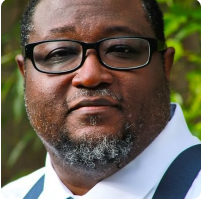
Let me be clear. I am not a K-12 teacher or administrator. I got into the ed game via out of school learning programs, so I have a different perspective. I was also trained as a Family Life Educator, which has had an undeniable impact on what I believe education is and what it should be.
For me education is about experience and how those experiences shape or inform how people see the world. And it is about exposing students to people, places, and ideals beyond what they see everyday. What this does is raise the expectations students place upon themselves.
In this digital age, that means understanding that learning is not insular and that ideas are bigger than the school, the neighborhood, the state, etc. Using Skype and various other emerging technologies, schools have a responsibility to students to provide them with opportunities to work in partnership with other students here in the U.S. and across the globe. It is with this type of engagement and interaction that students develop into critical and creative thinkers and global citizens, who have an appreciation for the commonality in the human experience.
It also means connecting with students and developing learning programs to address many of the issues students face in becoming free-thinking adults. This involves teaching students about dating, decision-making, identity, self-esteem, interpersonal relationships, as well as sexuality and sexual orientation. Openly and honestly addressing those issues is not only relevant to the experiences and educational needs of young adults, it “allows for [students to have the space] to develop their own beliefs and values” (Gutek, 2004, 284).
Education in the digital age is not about reading, writing, and arithmetic. It is about unleashing students creativity and creating spaces where students are free to be themselves, free to explore the subject-matter, and free to discover who they are and what they believe. This is no longer a world divided by distance or cultural segregation. And the way we educate our children should reflect that reality.
Reference
Gutek, G. L. (2004). Educational Philosophy and Changes. Boston: Pearson CustomPublishing.
 Will Deyamport, III, is an Ed.D. Candidate, an education thought-leader and online content creator. His blog, PEOPLEGOGY, focuses on life and career developments. In addition to his 11 years of experience in education, he has interned with the likes of Ingrid Stabb and J. T. O’Donnell. Currently, Will is working on his dissertation, which focuses on using social media to individualize professional development for teachers.
Will Deyamport, III, is an Ed.D. Candidate, an education thought-leader and online content creator. His blog, PEOPLEGOGY, focuses on life and career developments. In addition to his 11 years of experience in education, he has interned with the likes of Ingrid Stabb and J. T. O’Donnell. Currently, Will is working on his dissertation, which focuses on using social media to individualize professional development for teachers.


Very well said! Teachers will no longer be expected to be the holder of the information, but asked to take on the role of a knowledge guide or coach. The transformation into the information age will not be easy, but it could lead to so many good things.
ReplyDeleteThank you. My life forever changed when I watched a TV show called Taking It Global. It was the precursor to turning the switch in my mind about what could be done with education. It is with that spirit that I hope ed leaders begin to think about the consequences for keeping school the status quo
ReplyDelete